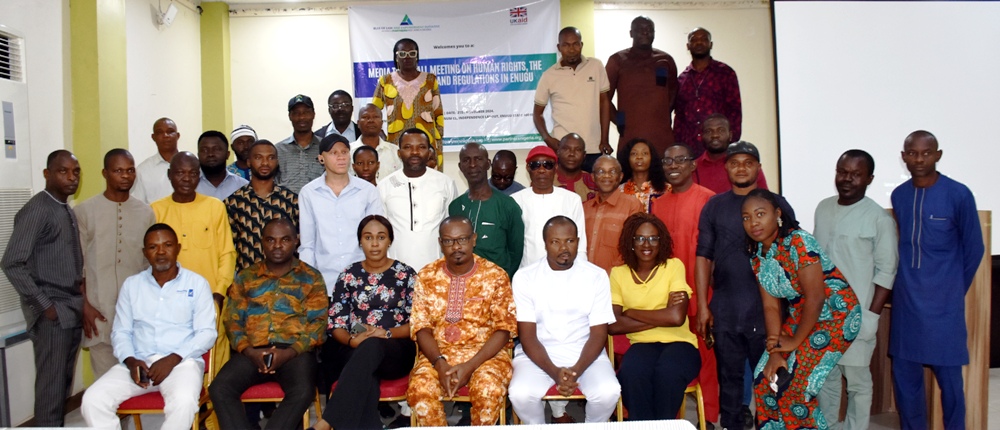As part of strategic steps to deepen knowledge of and achieve full implementation of the Police Act 2020, a non-governmental organization, the Rule of Law and Empowerment Initiative, also known as Partners West Africa Nigeria, PWAN on Thursday, organized a one-day Media Townhall Awareness on Human Rights, the Police Act and Regulations in Enugu.
The town hall meeting, which attracted journalists from each of the five Southeast States, was organized with support from the Foreign Commonwealth Development Office.
The Police Act 2020 was signed into law by former President Buhari in 2020, replacing the Colonial Police Act of 1943, and was designed to introduce a lot of innovation in Police governance.
In an address, the Executive Director of PWAN, Kemi Okenyodo, who spoke through the organization’s Monitoring and Evaluation Officer, Nkem Okereke, observed that Nigeria has faced systemic policing issues characterized by allegations of corruption, misuse of power, and significant disconnect between police operations and community expectations.
According to her, this problem has been exacerbated by the officers’ and police management’s lack of comprehensive understanding and inconsistent implementation of the policing laws.
She said that in light of the challenge, the PWAN put the program together to seek ways to address critical gaps in understanding and applying the Police Act 2020 and the accompanying regulations within the Nigerian Police Force.
“We intend to achieve this through capacity building of the senior police officers, sensitization of the public on the provisions of the Act, and media townhall meetings
“Many citizens remain unaware of their rights and as a result, are unable to hold the police accountable when their rights are violated. This is why the media should mainstream the police act,” she said.
A facilitator at the programme and Executive Director of the Rule of Law and Accountability Advocacy Centre, RULAAC, Okechukwu Nwanguma, noted that the Act aims for an efficient and effective police service driven by principles of transparency and accountability, protection of human rights, and partnership with other security agencies.
He highlighted gaps in the old act, including insufficient articulation of the police’s mission, lack of secured tenure for the IGP, insufficient accountability provisions, too many discretionary powers for the police, and inadequate protection of civil rights and liberties. He added that the new act also made provision for procedural safeguards to ensure that police exercise of powers can be regulated.
Regretting that the police hierarchy is not making efforts to ensure that the rank and file of the force are acquainted with the details of the Act, Nwanguma said the media is now being engaged to drive the awareness campaigns.
He quipped, “A lot of issues that came up here at the town hall- low level of awareness, how police manipulate investigation processes, corruption, labeling of innocent persons as criminals, harassment of the media, among others.
“We strongly believe that consistently projecting these issues on the media and creating awareness, mobilizing public opinion, will force the police to be on their toes to do the right things always.”
A security and peace-building specialist and consultant to PWAN on the project, Bashir Olasupo, said the media have a role in demanding accountability and transparency from the police using the instrumentality of the Act, adding that it is through the reports of the media, which are the true representation of facts on the ground, that the plights of the people are showcased.
However, he noted that the media must also highlight the police’s success stories, promote the need for police reforms, facilitate discussions involving stakeholders, advocate for effective implementation, and make necessary amendments to enhance the Act.
Some journalists at the meeting, Ken Ofoma, Patrick Chimezie, and Ugonna Agu, said the meeting was an exposition on a crucial aspect of their work, noting that they are now better equipped to perform their jobs as society’s watchdogs.
They also promised to use their reports to awaken people’s consciousness of their rights and reduce the increasing infractions on their rights.



